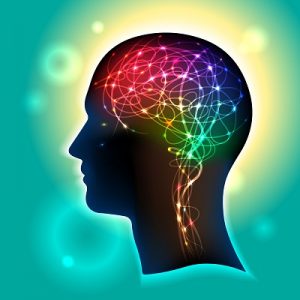- Without a brain, there is no awareness of self or the world
- The human brain is the most powerful learning tool in the world. It is an intricate and complex network comprised of 100 billion neurons that meet at over 500 trillion synapses that travel 300 miles per hour
- Signals that travel through the neuronal brain network form a complex highway that is the basis of feelings, thoughts, and memories
- Throughout a human life, the brain codes memories, skills, thoughts, emotions and a sense of self by creating patterns of activity
The health of your brain is primarily regulated by the presence and action of special hormone like compounds known as neurotransmitters. These neurotransmitters ensure and facilitate the transmission of nerve impulses across neurons in the brain, in order for the brain to signal an appropriate response for the body to take.
For example, if faced with a dangerous situation, the brain needs to signal to the body to increase production of adrenalin, noradrenalin and cortisol rapidly, in order for you to run or take on the external stimuli.
However, as important as these neurotransmitters may be, there are times when an abnormality may result in them, causing an adverse change in brain chemistry leading to development of some sort of health condition.
Among the most studied disorder resulting from negative changes in neurotransmitters is depression, which affects millions of people around the world.
Let’s learn how these neurotransmitters may affect your brain health.
GABA
Short for a very technical name- Gamma amino butyric acid, this is the brain and body’s primary calming neurotransmitter.
Without the presence and action of GABA, the brain would be unable to signal when it’s time for the body to prepare for sleep, and we would chronically be in a state of flight or action.
As you may have guessed, this is a recipe for nervous system burnout, and a short life. GABA also help to relieve anxiety, and overall worry when faced with an uncomfortable stimuli.
Serotonin
This is the other major inhibitory neurotransmitter, aptly referred to as the “master” neurotransmitter. Why? Because serotonin influences domain over many aspects of our mood and wellbeing, along with many essential biological processes, such as controlling hunger, sleep patterns and overall wellbeing.
It is also very important in our feelings of self-worth, with low levels a complicit factor in development of depression.
Chronically poor sleep patterns, nutrition or elevated inflammatory patterns may slowly chip away at normal levels of serotonin, resulting in the seeping in of depression and suicidal thought, as well as compulsive behavior.
Dopamine
A unique neurotransmitter with both inhibitory and stimulatory actions, deepening on where it acts. However, for all intents, it is considered a stimulatory one, as its actions are mainly associated with positive go-getter type states essential for human life.
Critical in helping us to concentrate, and in the reward centers of the brain, low levels of dopamine have been associated with higher incidence of ADHD.
Dopamine is the neurotransmitter that keeps you motivated and interested in something, ultimately responsible for your drive and aggression.
Low levels are associated with lethargy, general indifference to life and is a strong indicator in drug seeking behavior. Illicit drugs are primarily stimulants which result in a massive but short lived dopamine spike, which explains the need to use again and again, as it delivers a reward sensation each time.
Glutamate
Another excitatory neurotransmitter that is not often discussed, it plays an important part in learning and memory. Low levels are commonly associated with difficulty in learning, and may play a part in development of neurodegenerative afflictions like Alzheimer’s disease.
Norepinephrine and Epinephrine
Also known as noradrenalin and adrenalin, these are hormones as well as neurotransmitters. Epinephrine is produced from norepinephrine, whose functions are to modulate brain activity.
In fact, norepinephrine can positively alter the actions of other cells, to boost concentration, motivation and other effects. Epinephrine blunts insulin secretion and promotes use of fatty acids for energy. Thus, it may help prevent the brain fog experienced when low on blood glucose.
When it comes to mood, no single neurotransmitter/ hormone is solely responsible for it. Though serotonin is more strongly associated with development of depression or constant feelings of withdrawal, dopamine also plays an important regulatory role in wellbeing.
A good diet, exercise and sufficient sleep is a good place to start when trying to maintain and optimize neurotransmitter levels to experience consistent moods and brain health.







